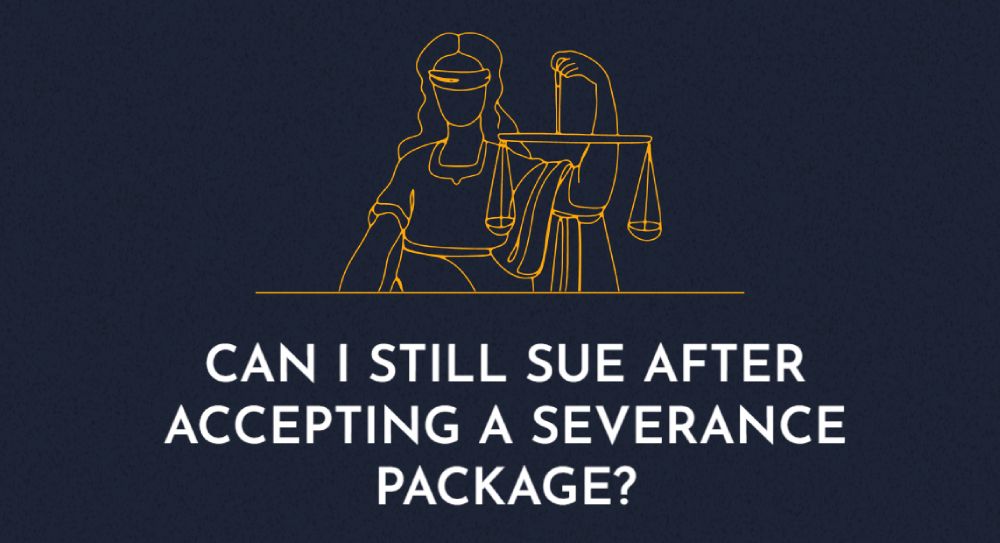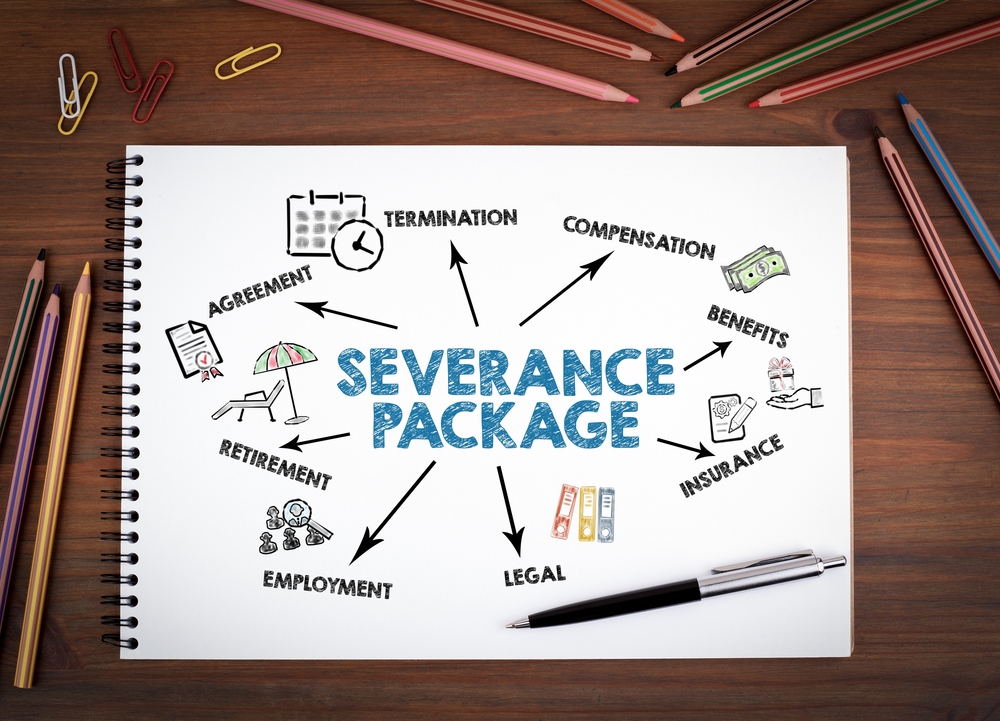
When you sign on the dotted line to receive a severance package, it feels like closing the chapter on your job. But what if that chapter includes discrimination, retaliation, or income theft? Can you still bring a claim after taking the money? In Florida, the answer isn’t simple, but it’s rarely as final as employers would like you to believe.
Many workers assume that accepting a severance agreement automatically cuts off any legal options. Employers want you to think that, too. What they rarely mention is that some waivers don’t hold up, and certain claims can’t be waived at all.
If an employer violated your rights, a Florida employment lawyer will take a hard look at the paperwork and the context surrounding your termination. A legal representative is ready to hear the details of your case and advise you on the best plan of action.
What Your Signature Really Means in Florida

Just because you signed something doesn’t mean it’s legally airtight. Florida courts don’t blindly uphold every agreement placed in front of a departing employee. If your severance contract includes unclear language, broad waivers, or conditions that violate public policy, an attorney may identify key provisions that can be challenged.
Employers often include release clauses that attempt to bar you from suing later. But even those clauses have limits. If the waiver wasn’t knowing and voluntary, it won’t stand. A legal professional will examine whether you were given a fair chance to read and consider the terms. They’ll determine whether your legal rights were explained and if any coercion or misleading language was involved.
Timing also matters. If your employer gave you the agreement and demanded a signature immediately – or threatened to withhold final pay until you signed – it can invalidate the waiver. Under certain federal laws, including the Older Workers Benefit Protection Act, workers over 40 are entitled to a minimum review period. When those rules get ignored, a Florida employment attorney will argue that your consent wasn’t legitimate.
Discrimination Claims Can Be Difficult to Waive
If your workplace exit followed harassment or unequal treatment, don’t assume that the severance check buys silence. Some claims, especially those involving Title VII of the Civil Rights Act or the Florida Civil Rights Act, can still move forward – even if you signed a general release.
The key question is whether your employer gave you enough information to make a fully informed decision. If you didn’t understand what rights you were waiving or didn’t know you had a potential claim, a lawyer will argue the release is invalid. It’s one thing to knowingly trade potential litigation for compensation. It’s another to sign something without realizing your employer broke the law.
Your Florida employment attorney will also investigate whether you were targeted based on race, gender, disability, religion, or pregnancy status. If the severance package was offered as a quick way to cover up illegal bias, your claim may survive. Courts take a dim view of employers who try to buy silence after breaking discrimination laws.
Retaliation Still Leaves the Door Open
Whistleblower cases create a unique situation. Florida law protects employees who report illegal conduct, whether that report went to a supervisor, HR, or a government agency. If you were punished for doing the right thing, your rights can’t be signed away that easily.
A severance agreement might waive your right to sue for retaliation. However, public policy considerations often override private contracts in these situations. Suppose your employer terminated you for filing a complaint, testifying in an investigation, or alerting authorities to fraud. In that case, a Florida employment lawyer will argue that your claim deserves to be heard in court.
Even if you signed a release, you might still have a case under the Florida Whistle-blower’s Act or federal protections like the Sarbanes-Oxley Act. An attorney will evaluate whether your employer’s behavior triggered protections that make certain claims non-waivable.
Were You Given a Choice – or a Trap?
The way a severance package is presented says a lot about whether it’ll hold up. If it came with pressure, threats, or misleading statements, your signature may not count for much. Your legal representative will look closely at how the agreement was introduced and whether you were manipulated into signing it.
Many employers frame the severance agreement as a generous gesture. But when workers get fired for reporting safety violations or questioning unpaid income, that “generosity” starts to look like hush money. If your boss hinted that you’d lose access to COBRA coverage or unemployment benefits unless you signed, a lawyer will call that coercion – and it might void the deal.
Even subtle pressure can matter. If HR downplayed the significance of the waiver, told you it was standard paperwork, or rushed you through the process, your release might not be valid. What happens if your employer misled you into signing away your rights? In some cases, the waiver can be challenged and thrown out. Florida courts have tossed out waivers when employees weren’t given a fair chance to seek legal advice before signing.
Earnings Claims Are Often Non-Waivable
Workers can’t agree to let their employers break income laws. That’s true in Florida, and it’s backed by federal law. If your employer shorted your final paycheck, failed to pay overtime, or violated minimum wage rules, a severance agreement won’t necessarily erase your claim.
A Florida employment lawyer will check to see if the Fair Labor Standards Act or Florida’s Minimum Wage Act applies to your case. These laws don’t let companies sidestep liability through private agreements. If you were underpaid, you may still be able to recover those earnings, even if you took severance money.
It’s also important to check whether your severance package paid out what you were already owed. If your employer bundled unused vacation time or commissions into the severance agreement, they might’ve disguised regular income as a bonus. An attorney will unpack the math and identify any unpaid earnings that remain on the table.
Severance Agreements Can’t Block Government Action
No matter what you signed, you can still report illegal conduct to the government. Your severance package can’t block you from filing a charge with the Equal Employment Opportunity Commission or the Florida Commission on Human Relations. It also can’t prevent an investigation by the Department of Labor or the Occupational Safety and Health Administration.
If your employer tells you otherwise, that’s a problem. A Florida employment attorney will immediately recognize that kind of clause as unenforceable. You have the right to speak up about discrimination, earnings violations, or workplace hazards, regardless of any private agreement.
Government agencies might still investigate your former employer even if you accepted a settlement. In some cases, you may even be eligible for compensation through regulatory fines or restitution programs. A lawyer will help you decide whether to file a charge and how that might affect any pending or past agreements.
Age Discrimination Demands Special Scrutiny
Federal protections for older workers don’t just exist in theory – they carry real, enforceable obligations that Florida employers must honor. If you’re over 40 and recently faced a layoff, forced retirement, or were asked to sign a severance waiver, your situation deserves closer inspection. The OWBPA mentioned earlier adds a critical layer of defense for seasoned professionals. This isn’t just extra paperwork – it’s a shield against quiet ageism masked as business strategy.
Red Flags in Mass Layoffs and “Neutral” Downsizing
Age discrimination doesn’t always announce itself with overt insults or blunt ultimatums. Sometimes, it hides inside corporate spreadsheets during layoffs. If your employer claimed the termination was part of a broader reduction in force, they were required to provide specific disclosures – job titles, ages of those retained and dismissed, and the criteria used for the decision. A diligent lawyer will immediately look for those disclosures in your paperwork and flag any omissions.
Even if the numbers appear neutral on the surface, deeper analysis can expose patterns. When older employees make up a disproportionate share of the exits – especially if younger staff with less experience were retained – something may be off. An experienced attorney can bring in statisticians or use internal documents to draw out trends your employer hoped would stay buried in the fine print. Understanding what are my rights in these situations is critical to challenging unfair treatment and holding the employer accountable.
Why Context Changes Everything
A waiver isn’t judged in a vacuum. It’s evaluated against the backdrop of how it was presented, what was said, and whether your consent was freely given. If you were recovering from medical issues, managing a sudden financial shock, or emotionally overwhelmed by the suddenness of the layoff, that all matters. An attorney will want to understand your state of mind and whether your employer exploited it.
Age discrimination often flies under the radar because it’s easy to couch in “business needs” or “organizational shifts.” Those excuses start to unravel when scrutinized through the lens of the OWBPA and broader anti-discrimination laws. A Florida employment lawyer with experience in Florida employment cases won’t just accept the company’s rationale at face value. They’ll compare how you were treated to others, look for internal communications that reveal bias, and consider whether your years of service were conveniently rebranded as “too expensive” or “out of step.”
When Pressure Turns into Legal Leverage

You didn’t need to be shoved into a room and yelled at for a waiver to be signed under duress. Pressure can be subtle and still cross the legal line. Maybe you were told the offer will disappear in 24 hours or that asking too many questions can “slow things down” for everyone. If you were rushed, guilt-tripped, or denied time to consult outside counsel, those circumstances might invalidate your release.
Florida courts have made clear that consent under false pretenses is no consent at all. An attorney will dig into exactly how your employer presented the agreement. If they misrepresented your rights, downplayed the consequences, or suggested that you didn’t need legal guidance, that conduct can be fatal to their defense. Courts won’t tolerate gamesmanship when it comes to waiving civil rights.
Even what was said off the record matters. If someone in HR told you the waiver didn’t mean you were giving up the right to sue – or that it was just “routine paperwork” – those comments can carry serious weight in court. A seasoned lawyer knows that context is everything. Knowing how to deal with misleading information at the time can make a big difference later. A slick document doesn’t mean much if it was sold with half-truths and veiled threats.
Severance Agreements Aren’t Fireproof
Companies often treat severance documents as shields – assuming once they get a signature, they’re off the hook forever. But Florida courts don’t rubber-stamp those assumptions. If the document was flawed, the process was coercive, or new wrongdoing came to light later, the agreement might not hold. An employment attorney will test every clause and challenge every assumption your employer made.
In particular, severance agreements can’t preempt future retaliation. If you speak up post-departure about possible misconduct and the company retaliates by cutting off COBRA benefits or contacting future employers to poison your reputation, those actions aren’t protected by your earlier signature. A lawyer will treat each one as a new violation – and courts often agree.
Your Right to Legal Help Never Expires
You don’t need to figure this out alone. If something about your severance package doesn’t sit right, you’ve got options. Whether you’ve already signed or are still deciding, a Florida employment attorney will review the agreement, explain what rights you still have, and explore whether a lawsuit remains on the table.
Employment agreements aren’t always what they seem. Some contain language designed to intimidate, confuse, or dissuade you from asserting your rights. What are the dangers of signing without understanding those terms? You could unknowingly waive important legal claims or limit your ability to seek justice later. Your legal professional will cut through that language and tell you what the agreement actually does – and doesn’t – do.
Even if your waiver seems airtight, it might not be. It’s common for people to believe they signed away everything, only to learn later that some claims survive. A Florida employment lawyer will look deeper than the surface and advise you based on what holds legal weight.
Don’t Assume Silence Means Closure
Accepting severance doesn’t always mean the story’s over. If your rights were violated, that chapter may still be open. What you signed might have closed one door, but others may remain wide open, especially if your employer broke the law on the way out.
A Florida employment attorney will help you determine whether your agreement was fair, legal, and enforceable. If it wasn’t, your path forward might still include legal action. Employers don’t get to silence you just because they offered a payout. If something feels off, trust that instinct. A lawyer will take it from there. Contact a legal professional for a free case review to learn more.

